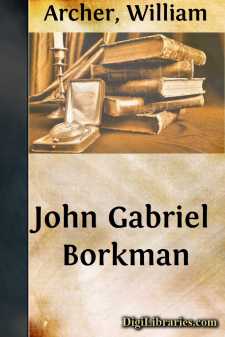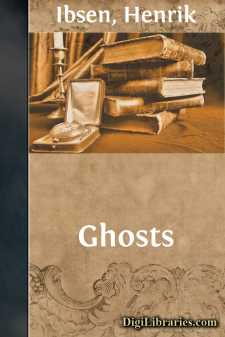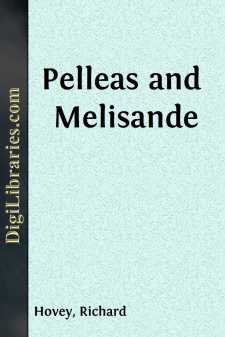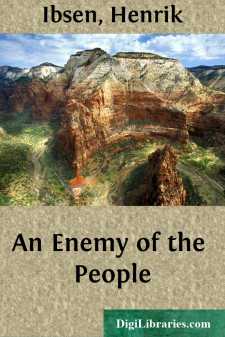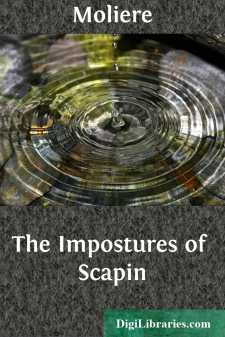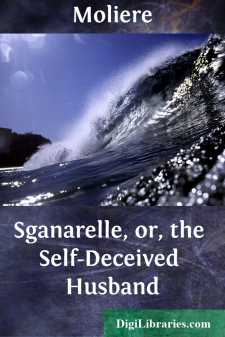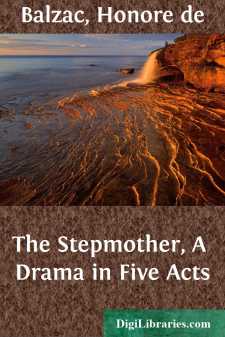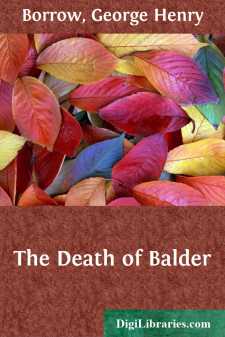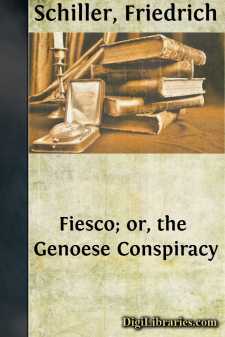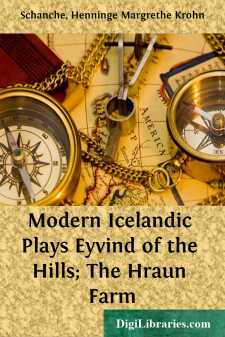Drama
- American 43
- Ancient, Classical & Medieval 45
- Asian 7
- Caribbean & Latin American 2
- Continental European
- English, Irish, Scottish, Welsh 91
- General 105
- Middle Eastern 1
- Religious & Liturgical 1
- Shakespeare 1
Continental European Books
Sort by:
by:
William Archer
INTRODUCTION.* The anecdotic history of John Gabriel Borkman is even scantier than that of Little Eyolf. It is true that two mentions of it occur in Ibsen's letters, but they throw no light whatever upon its spiritual antecedents. Writing to George Brandes from Christiania, on April 24, 1896, Ibsen says: "In your last letter you make the suggestion that I should visit London. If I knew enough...
more...
by:
Henrik Ibsen
ACT I (SCENE.—A large room looking upon a garden door in the left-hand wall, and two in the right. In the middle of the room, a round table with chairs set about it, and books, magazines and newspapers upon it. In the foreground on the left, a window, by which is a small sofa with a work-table in front of it. At the back the room opens into a conservatory rather smaller than the room. From the...
more...
by:
Richard Hovey
SCENE I.—The gate of the castle. MAIDSERVANTS (within). Open the gate! Open the gate! PORTER (within). Who is there? Why do you come and wake me up? Go out by the little gates; there are enough of them!… A MAIDSERVANT (within). We have come to wash the threshold, the gate, and the steps; open, then! open! ANOTHER MAIDSERVANT (within). There are going to be great happenings! THIRD MAIDSERVANT...
more...
by:
Henrik Ibsen
ACT I (SCENE.—DR. STOCKMANN'S sitting-room. It is evening. The room is plainly but neatly appointed and furnished. In the right-hand wall are two doors; the farther leads out to the hall, the nearer to the doctor's study. In the left-hand wall, opposite the door leading to the hall, is a door leading to the other rooms occupied by the family. In the middle of the same wall stands the stove,...
more...
by:
Moliere
ACT I. SCENE I.—OCTAVE, SILVESTRE. Oct. Ah! what sad news for one in love! What a hard fate to be reduced to! So, Silvestre, you have just heard at the harbour that my father is coming back? Sil. Yes. Oct. That he returns this very morning? Sil. This very morning. Oct. With the intention of marrying me? Sil. Of marrying you. Oct. To a daughter of Mr. Géronte? Sil. Of Mr. Géronte. Oct. And that this...
more...
by:
Moliere
This play seems to have induced several English playwrights to imitate it. First, we have Sir William D'Avenant's The Playhouse to be Let, of which the date of the first performance is uncertain. According to the Biographia Britannica, it was "a very singular entertainment, composed of five acts, each being a distinct performance. The first act is introductory, shows the distress of the...
more...
by:
Honore de Balzac
ACT I SCENE FIRST (A richly decorated drawing-room; on the walls are portraits of Napoleon I. and his son. The entry is by a large double glass door, which opens on a roofed veranda and leads by a short stairway to a park. The door of Pauline's apartments are on the right; those of the General and his wife are on the left. On the left side of the central doorway is a table, and on the right is a...
more...
ACT THE FIRST. BALDER and THOR are seated upon stones at some distance from each other. Both are armed—THOR with his hammer, and BALDER with spear and sword. BALDER. Land whose proud and rocky bosomBraves the sky continually! THOR. Where should strength and valour blossom,Land of rocks, if not in thee? BALDER. Odin’s shafts of ruddy levinBack from thy hard sides are driven;Never sun thy...
more...
ACT I.SCENE I.A Saloon in FIESCO'S House. The distant sound of dancing andmusic is heard. LEONORA, masked, and attended by ROSA and ARABELLA, enters hastily. LEONORA (tears off her mask). No more! Not another word! 'Tis as clear as day! (Throwing herself in a chair.) This quite overcomes me—— ARABELLA. My lady! LEONORA (rising.) What, before my eyes! with a notorious coquette! In presence...
more...
INTRODUCTION BOTH volumes of the Scandinavian Classics selected to appear in 1916 are by natives of Iceland. They belong, however, to periods of time and to modes of writing remote from each other. Snorri Sturluson, the greatest of Icelandic historians, was born in 1179. His Prose Edda, the companion-piece of the present volume, is a Christian's account of Old Norse myths and poetic conceptions...
more...


